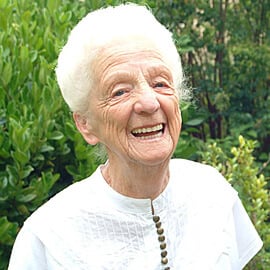Are you hard of hearing? If so, you are in good company - one in six Australians are in some way hearing impaired, with over half of those aged between 60 and 70 affected.
Hearing loss is one of the most prevalent disorders suffered in Australia today, and can be most damaging to our quality of life. Research has shown it can result in:
Depression - confusion leads to frustration and isolation
Reduced physicality - lack of confidence triggers inactivity and withdrawal
Functional decline - difficulty hearing makes it impossible to operate at 100 percent
Loss of income - inability to function fully takes a financial toll
But hearing loss does not have to signal the end of life as you know it - in fact, hearing can be as simple as believing.
What Happens to Our Hearing as We Age?
Presbycusis, or progressive bilateral symmetrical age-related sensorineural hearing loss, is the term for what goes wrong with our hearing as we age. Hearing loss related to presbycusis usually affects high-pitched sounds first. Speech sounds like s, f and t become harder to hear than others, and as a consequence words that are quite different - tea, pea and key, for instance - register as the same. People with presbycusis often say, ‘I can hear but I can't understand,' and this is why.
Presbycusis develops gradually, and at first you may not notice your hearing is diminishing. We often find ways to minimise the effects of hearing loss - by lip-reading, avoiding situations where there is excessive background noise, or relying on non-verbal cues such as facial expressions and body language. Sometimes we also go into denial, consciously or subconsciously thinking that to give in to hearing loss is to give in to old age.
What Can Be Done?
What remains is that 90 to 95 percent of hearing loss can be treated with hearing assistance. Hearing aids have come a long way in the last 10 years - no longer the large and clunky devices you might have seen your parents use, they are smaller, more sophisticated and can be adjusted to better suit individual needs.
A new Siemens range available at Australian Hearing centres, for example, features highly discreet aids that can for the first time adjust volume automatically. Chairman at Siemens Hearing Instruments Barry Roberts explains: "They represent the latest technology and designs. They can be matched to your hair or skin colour, or you can get different colours and patterns, like leopard print. These new and exciting products are a great offering to the technologically savvy, fashion-conscious consumer." Nothing old hat about that!
Requiring hearing assistance is, moreover, nothing to be ashamed of - luminaries such as former US president Bill Clinton, actor and comedian Bill Murray, and golfer Arnold Palmer all wear aids. Ambassador for Australian Hearing Dr. John D'Arcy goes so far as to say: "An expertly fitted digital hearing aid can significantly reduce the physical and emotional consequences of hearing loss. People who wear hearing aids are less affected by depression, have improved health, and experience a sense of independence and control over their lives." Believing that assistance will allow you to continue your life unhindered is indeed all you need to hear.
An agency of the federal government, Australian Hearing is Australia's leading provider of high quality hearing care. Most aged Australian pensioners are entitled to free or subsidised hearing services. Find out if you are eligible by calling 131 797 or visiting your local Australian Hearing centre.
There are two types of hearing loss:
Conductive - where problems with the outer and / or middle ear prevent it conducting sound to the inner ear. The result is an overall lowering of volume and inability to hear faint sounds. Conductive hearing loss is often temporary and can be helped with medical or surgical treatment.
Sensorineural - involves damage to / malfunction of the cochlea or hearing nerve through over-exposure to noise, diabetes, smoking or age. Sensorineural hearing loss leads to a lack of loudness and clarity and can be ‘fixed' with hearing assistance.






